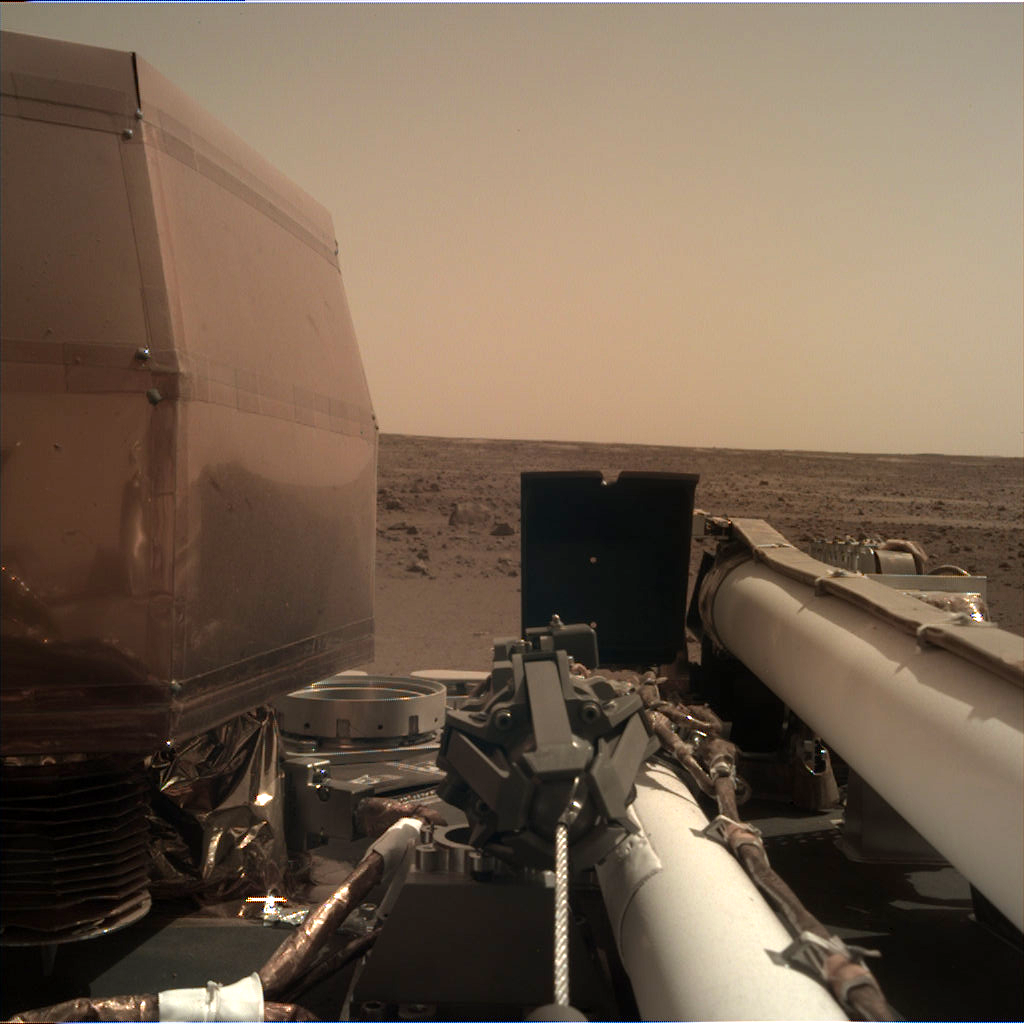
Named after the Roman god of war and often appearing as a bright red point of light in the sky, the so-called red planet has always been a source of fascination for human beings. To modern planetary scientists Mars is still a curious place with many unanswered questions. Its surface features include the largest volcano in the solar system (so large it sticks out above the top of Mars’ atmosphere), and a canyon that stretches some 4000km in length. Over the last few decades there have been many attempts to land scientific experiments on the surface of Mars, but landing on Mars is a difficult task and many of these missions have failed.
On Monday November 26th 2018, the NASA InSight mission headed into the atmosphere of Mars after a six-month journey from Earth, landing successfully at 1953GMT. Dr Megan Argo from the JHI talked to BBC Radio Lancashire and BBC News about the mission. “The lander carries three science instruments on board, all designed to help us understand how Mars formed, and how it came to look the way to does today. These instruments include a seismometer to measure and characterise ‘Mars quakes’ and monitor meteorite impacts, a drill which will burrow five metres into the rock to investigate the thermal properties of Mars’ crust, and a pair of radio antennas that will accurately measure the position of the lander over its two-year operational period in order to measure the “wobble” of Mars as it spins on its axis. Together these instruments will tell us about how quickly Mars loses its internal heat, help us understand the internal structure of the planet, and determine whether Mars still has a liquid core (like the Earth) or whether it has solidified.”
The mission is due to run for just under two years and should help answer many long-standing questions about the history of Mars, and help us understand whether Mars and the Earth evolved the same way. You can find out more about the mission at the project website: https://mars.nasa.gov/insight/
